- Home
- Fergus Hume
The Millionaire Mystery Page 22
The Millionaire Mystery Read online
Page 22
Their jaws dropped when old Drupp brought forward Eliza’s specimen. At first they insisted that the petals were painted, but when by direction of old Bendel the plant was handed round, and handled, and smelt, and thoroughly examined, they were reluctantly compelled to admit that it was a genuine rainbow camellia. The admission almost drew tears from their eyes, and they mourned Ichabod! Ichabod! The two plants placed on either side of the magistrate appeared to closely resemble one another, save that Eliza’s was the smaller of the two. I forgot to mention that the Hackney plant had eight buds while the Foxton plant showed twelve. As a blossom had been plucked from each, these were respectively reduced to seven and eleven.
Drupp’s evidence in conjunction with the production of the plant turned the scale in favour of Eliza. It was all plain sailing when he opened his mouth. The plant belonged to his daughter; it had been brought from China by her brother the steward; under her care it had grown and flowered; and she had plucked a bud to compare with the blooms of the Foxton bush. No link was wanting in the chain of evidence to prove the innocence of the prisoner, and Bendel was reluctantly compelled to discharge her without a stain on her character. I say reluctantly, because he could not forgive Eliza for owning a duplicate of the Foxton fetish, and, taking every possible advantage, he delivered a smart lecture to its iniquitous possessor. There was no applause when Eliza left the dock.
Restored to freedom, she sought George Beanfield; but he, mindful of her threat, had departed long since. He left the town, he even left the country, for a letter addressed from the Continent was received by the president of the society, which cleared up the mystery of the missing Foxton bud. George stated that in attending to the plant he had accidentally knocked off a blossom and, fearful of a reprimand, had burnt it in the greenhouse fire. The appearance of Eliza with a similar bud to that destroyed had afforded him an opportunity of hiding his delinquency, by making her the scapegoat. He did not offer any opinion as to how he thought Eliza had become possessed of the blossom when the one missing from the bush had been destroyed by himself.
Thus was the innocence of Eliza proved beyond all doubt, and, angered by the unjust aspersions cast on her, she proceeded forthwith to turn the tables on her accusers. The morning following her acquittal, she appeared in my office with a wrathful countenance.
‘Now, sir,’ said she viciously, ‘I’m agowin’ to hev a action agin thim Gardins fur lockin’ me up.’
But the action never came off. The society, knowing it had no defence, owned that it was in the wrong, and offered to compromise. Moreover they feared lest Eliza should sell her plant to a rival society, and thus rob Foxton of the glory of solely possessing the rainbow camellia. After some correspondence, they agreed to settle the action for five hundred pounds, provided Eliza gave them her plant. This she did, and having received her damages, and paid my fees, she disappeared from Foxton.
A month afterwards my wife again brought up the subject of Eliza Drupp. As usual, the cook was her informant.
‘Fred,’ said she; ‘Eliza Drupp?’
‘Well, what has she been doing now? Stolen another camellia?’
‘No. She has married George Beanfield.’
‘The fellow who gave evidence against her? Impossible.’
‘It is true. Cook has this morning received a piece of the wedding cake.’
‘Well, all I can say is that Eliza is of a most forgiving disposition.’
‘I have no patience with her,’ replied my wife. ‘But I think she is ashamed to return to Foxton. She and George have gone to South America.’
‘A very sensible step to take,’ said I, weary of the subject. ‘They can set up on the proceeds of the trial At all events we have heard the last of Eliza Drupp.’
The remark was premature, for in less than twelve months I was again discussing Eliza, and learning the reason of her eccentric behaviour.
It was on board the Mandalay that I heard the truth concerning the matrimonial alliance of our former housemaid. I was ordered to take a sea voyage for the benefit of my health, and as Nell refused to come on the plea of being a bad sailor, I was obliged to make the journey alone. One place was much the same as another to me, provided the instructions of my physician were carried out; so, taking the first chance that presented itself, I embarked for China on a Three Star Liner. The ship was comfortable, the passengers sociable, and the table excellent, so the voyage promised to be very pleasant. As a description thereof is not pertinent to the story, I proceed at once to the episode which brought up again the name of Eliza Drupp.
Among the stewards figured a red-haired creature, freckled and stumpy. He was neither my table nor berth attendant, yet he never failed, when by accident I caught his eye, to salute me with a knowing grin. This mark of recognition led me to examine him closely, in the expectation of finding a former client or servant. I could not recall his features, yet they seemed to be familiar to me. We were in the Bay of Biscay when I spoke to him. The ship was rolling heavily, and on my way to lie down in my cabin, I met with my red-polled friend. He smiled as usual, whereupon I asked him if he knew me.
‘No, sir,’ said he with a grin, ‘but ’Lizer knows y’, sir.’
‘’Lizer?’
‘M’ sister, sir, ’Lizer Drupp es was.’
‘Ah, that accounts for the familiar look of your face. You are her brother Sam.’
‘Yessir. Shell I ’elp y’ long t’ y’ bunk, sir?’
‘If you please.’
By this unexpected meeting the circumstances of the case recurred to my mind, and I was pleased to meet with Sam. It was he who had brought the camellia to Eliza, and I wished to learn where he procured it, and also why his sister had married her enemy. Sam was not unlike my former client, but, owing to his vocation, he had a less pronounced cockney accent. At times, however, the Londoner peeped out.
‘How is Eliza?’ I asked, when safely bestowed in my bunk. ‘And where is Eliza?’
‘In Paraguay with ’er ’usband, sir. They’re es ’eppy es th’ doy es long.’
‘That is rather curious, Drupp, considering her husband was a witness in that case of—’
Sam interrupted me at this moment by laughing violently. I checked his untoward mirth with a frown, whereupon he wiped his eyes and apologized.
‘’Scuse me, sir, but I ken’t ’elp laufin’ when I thenk of thet ’ere caise. Y’ got ’Lizer foive ’un’red, y’ did, sir. She an’ George ’ave bowght a ranch in Paraguay an’ are gitting on fine. Don Jorge ’e is now, sir, an’ ’Lizer’s quite t’ laidy.’
‘Her bad luck was the cause of her good luck,’ said I epigrammatically; ‘it was a fortunate thing for Eliza that you brought her that rainbow camellia from China.’
Sam grinned, and again apologized.
‘Bless y’, sir, I didn’t bring no camelliar fro’ Chiner, sir.’
‘Then how did Eliza become possessed of the second plant?’
‘George, sir; ’e got er a slip off t’ Foxton plant.’
‘George!’ repeated I in amazement; ‘but he gave evidence against her. If he got her the slip he must have known that—’
‘’Course ’e did, sir. It was all ploy-actin’. ’Lizer wrote ’ome an’ told all about it.’
‘Then you can tell me all about it, Drupp. As I conducted the case I should like to hear the sequel. It may explain why Eliza married Beanfield.’
‘Thet it do, sir,’ said Sam, grinning. ‘It were this waiy, sir. ’Lizer ’ad no money, an’ George ’adn’t enough to marry on. Th’y wanted to git spliced, an’ so ’it on a plan to git money. ’Lizer she was readin’ about a cove es got a thousan’ poun’s fur bein’ put in quod when ’e was innercent, so she ses t’ George, “Cawn’t we try the saime gaime on an’ git enough t’ marry on?” An’ George, sir, ’ad an idear—’e’s a long-’eaded chap, sir—fur bein’ a gardiner to t’ Foxton Society ’e knew whot a lot th’y thought of thet blessed camelliar. So ’e steals a slip an’ tells ’Lizer to mek
it grow, an’ to tell father es I browght it fro’ Chiner. She arsked me t’ soy so, an’ not knowin’ ’er gaime I sid so. But I never knowed anythin’ about it, sir. Then ’Lizer meks it grow es George ses, tho’ ’twas a long toime growin’. When t’ flowers come, she taiks one t’ Foxton an’ walks into th’ green’ouse an’—’
‘I see, it was all arranged between them so as to sue the society and get damages?’
‘Yessir. George nipped off a bud an’ burnt it, ’e did. Then ’Lizer, wearin’ ’er own, comes out an’ ’e puts ’er in quod.’
‘And between the two of them they clear £500?’
‘Yessir, an’ then ’e marries ’er. D’y’ see, sir?’
‘I see, Drupp, and I must say they are a nice pair.’
‘Thet th’y are, sir. I’d ’a spilt their gaime ’ad I know’d it.’
After delivering this opinion Drupp departed and I was left to ruminate over his story. I quite believed that he was ignorant of the plot, but I was satisfied that had he known he would only have held his tongue if well paid. It was useless to give the benefit of the doubt to one who was of the same stock as Eliza. That artful girl knew her family too well to entrust them with her secret, and, less legal expenses, she and her fellow-conspirator got the whole of the damages to themselves. Much as I condemned their rascality, I could not but admire the cleverness with which they had planned and carried out their scheme. They had deceived Drupp, they had deceived the society, they had deceived me. Their comedy was extremely well acted, and ended quite to their satisfaction. Therefore I say that country wits are at times equal to those of townbred folks, for though the idea was Eliza’s, the conception and execution of the scheme emanated from the bucolic brain of George.
I told the whole story to my wife when I returned home, and she was very severe on her former housemaid. Naturally enough she could not keep it to herself, and in a short time the history of the deception soon became town talk. At first the members of the Horticultural Society were angered at being so treated, but as the delinquents were in South America, it was wisely concluded to let the matter drop. They possessed both rainbow camellias, and, warned by the trickery of George and Eliza, watched the plants with renewed vigilance. I do not think that anyone else will have the chance of stealing a slip of the Foxton fetish, but should a third rainbow camellia make its appearance in the market, old Bendel is quite resolved not to be hoodwinked a second time. He often regrets that he did not give Eliza six months, but is too late now, as the conspirators are farming in Paraguay. They ought to rear a rainbow camellia, if only to remind them of their iniquity.
THE END
THE DETECTIVE STORY CLUB
E. C. BENTLEY • TRENT’S LAST CASE
E. C. BENTLEY • TRENT INTERVENES
E. C. BENTLEY & H. WARNER ALLEN • TRENT’S OWN CASE
ANTHONY BERKELEY • THE WYCHFORD POISONING CASE
ANTHONY BERKELEY • THE SILK STOCKING MURDERS
LYNN BROCK • NIGHTMARE
BERNARD CAPES • THE MYSTERY OF THE SKELETON KEY
AGATHA CHRISTIE • THE MURDER OF ROGER ACKROYD
AGATHA CHRISTIE • THE BIG FOUR
WILKIE COLLINS • THE MOONSTONE
HUGH CONWAY • CALLED BACK
HUGH CONWAY • DARK DAYS
EDMUND CRISPIN • THE CASE OF THE GILDED FLY
FREEMAN WILLS CROFTS • THE CASK
FREEMAN WILLS CROFTS • THE PONSON CASE
FREEMAN WILLS CROFTS • THE PIT-PROP SYNDICATE
FREEMAN WILLS CROFTS • THE GROOTE PARK MURDER
MAURICE DRAKE • THE MYSTERY OF THE MUD FLATS
FRANCIS DURBRIDGE • BEWARE OF JOHNNY WASHINGTON
J. JEFFERSON FARJEON • THE HOUSE OPPOSITE
RUDOLPH FISHER • THE CONJURE-MAN DIES
FRANK FROËST • THE GRELL MYSTERY
FRANK FROËST & GEORGE DILNOT • THE CRIME CLUB
FRANK FROËST & GEORGE DILNOT • THE ROGUES’ SYNDICATE
ÉMILE GABORIAU • THE BLACKMAILERS
ANNA K. GREEN • THE LEAVENWORTH CASE
DONALD HENDERSON • MR BOWLING BUYS A NEWSPAPER
VERNON LODER • THE MYSTERY AT STOWE
PHILIP MACDONALD • THE RASP
PHILIP MACDONALD • THE NOOSE
PHILIP MACDONALD • THE RYNOX MYSTERY
PHILIP MACDONALD • MURDER GONE MAD
PHILIP MACDONALD • THE MAZE
NGAIO MARSH • THE NURSING HOME MURDER
G. ROY McRAE • THE PASSING OF MR QUINN
R. A. V. MORRIS • THE LYTTLETON CASE
ARTHUR B. REEVE • THE ADVENTURESS
JOHN RHODE • THE PADDINGTON MYSTERY
FRANK RICHARDSON • THE MAYFAIR MYSTERY
R. L. STEVENSON • DR JEKYLL AND MR HYDE
J. V. TURNER • BELOW THE CLOCK
EDGAR WALLACE • THE TERROR
ISRAEL ZANGWILL • THE PERFECT CRIME
FURTHER TITLES IN PREPARATION
About the Publisher
Australia
HarperCollins Publishers (Australia) Pty. Ltd.
Level 13, 201 Elizabeth Street
Sydney, NSW 2000, Australia
http://www.harpercollins.com.au
Canada
HarperCollins Canada
Bay Adelaide Centre, East Tower
22 Adelaide Street West, 41st Floor
Toronto, Ontario, M5H 4E3
http://www.harpercollins.ca
India
HarperCollins India
A 75, Sector 57
Noida, Uttar Pradesh 201 301, India
http://www.harpercollins.co.in
New Zealand
HarperCollins Publishers (New Zealand) Limited
P.O. Box 1
Auckland, New Zealand
http://www.harpercollins.co.nz
United Kingdom
HarperCollins Publishers Ltd.
1 London Bridge Street
London,SE1 9GF
http://www.harpercollins.co.uk
United States
HarperCollins Publishers Inc.
195 Broadway
New York, NY 10007
http://www.harpercollins.com

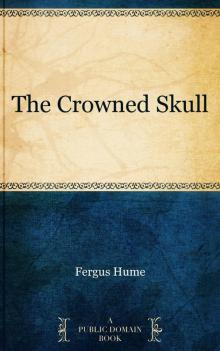 The Crowned Skull
The Crowned Skull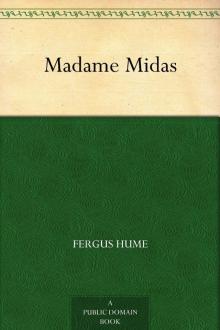 Madame Midas
Madame Midas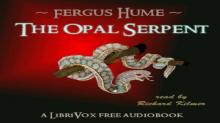 The Opal Serpent
The Opal Serpent The Solitary Farm
The Solitary Farm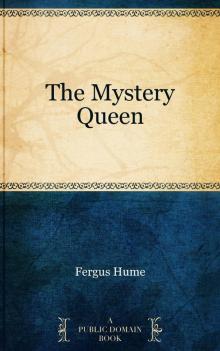 The Mystery Queen
The Mystery Queen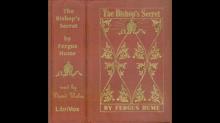 The Bishop's Secret
The Bishop's Secret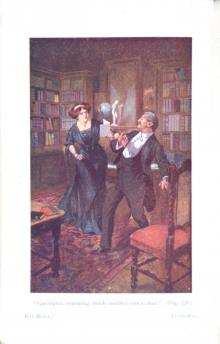 Red Money
Red Money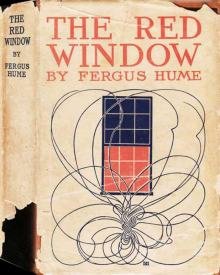 The Red Window
The Red Window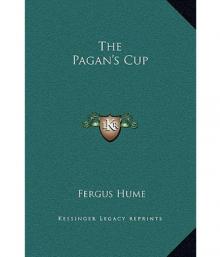 The Pagan's Cup
The Pagan's Cup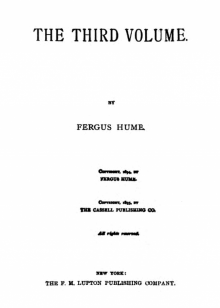 The Third Volume
The Third Volume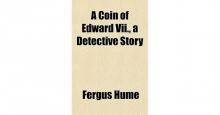 A Coin of Edward VII: A Detective Story
A Coin of Edward VII: A Detective Story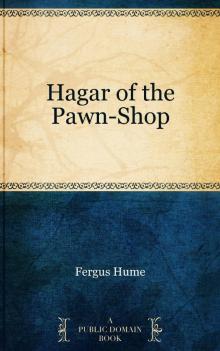 Hagar of the Pawn-Shop
Hagar of the Pawn-Shop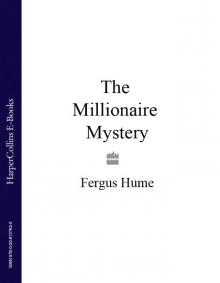 The Millionaire Mystery
The Millionaire Mystery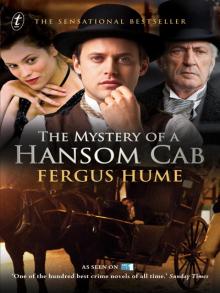 The Mystery of a Hansom Cab
The Mystery of a Hansom Cab